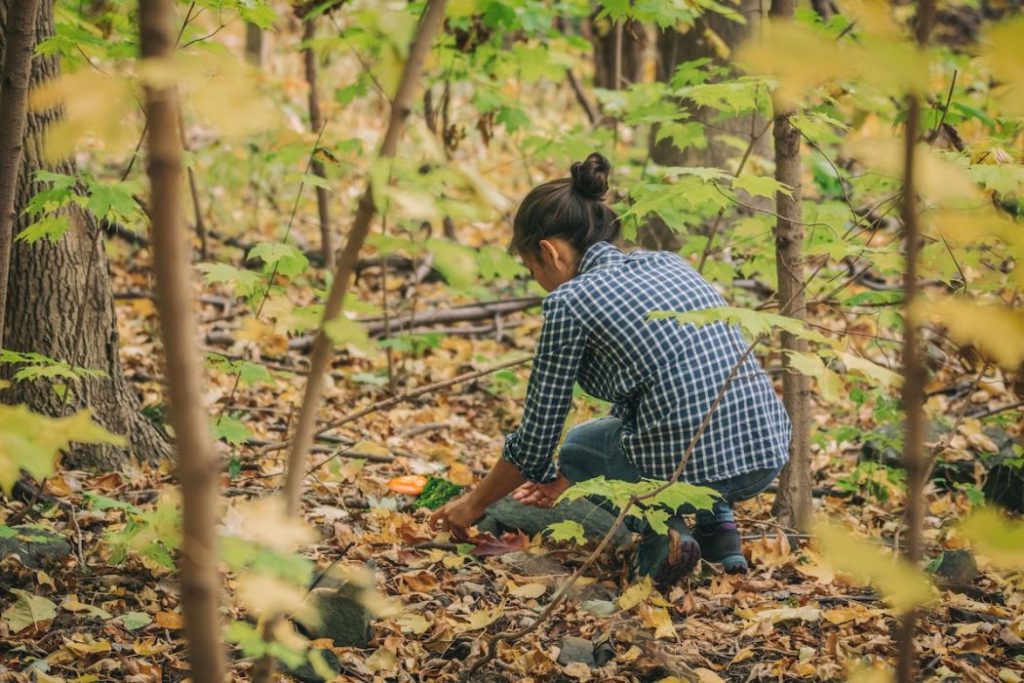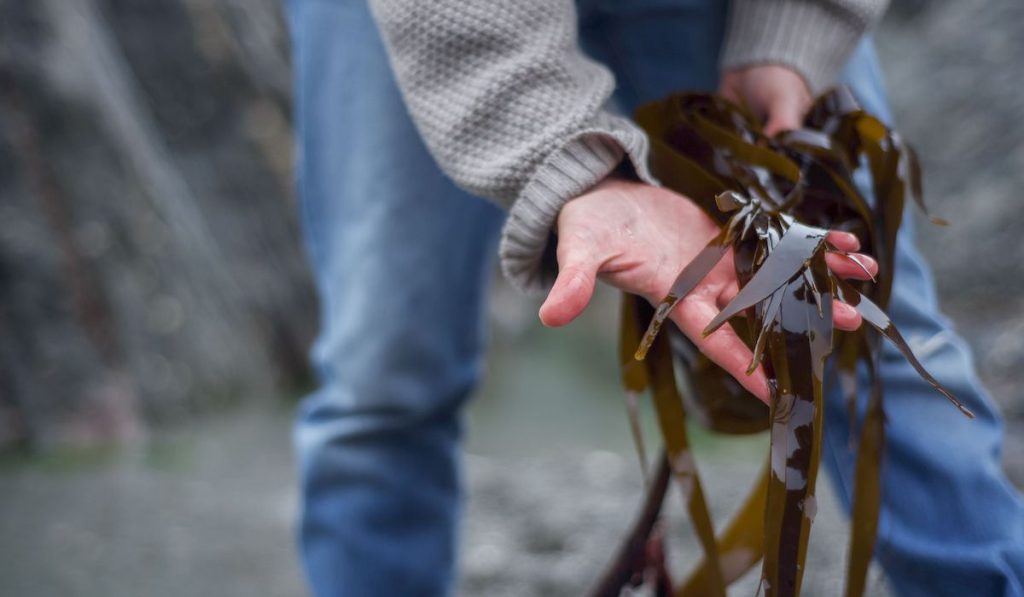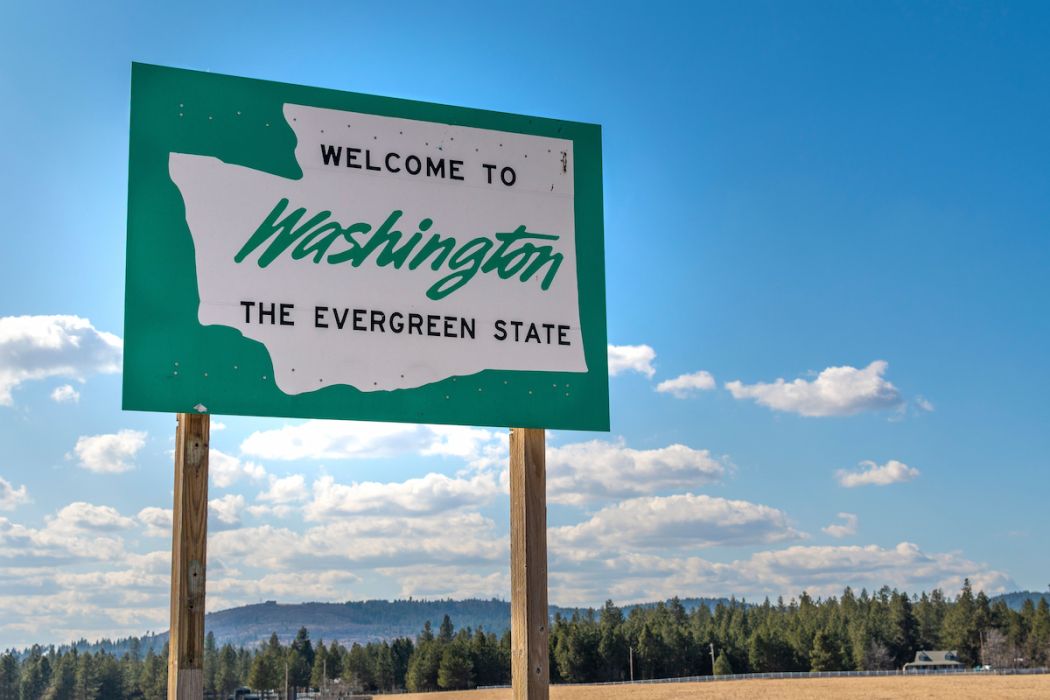Foraging is the process of searching, singling out, and gathering wild food for free in different non-occupied areas.
It’s a great way to experience nature and to gain health benefits from the various foods.
From land, you can forage greens, berries, mushrooms, and nuts.
And from the sea and freshwater sources, you can get seaweed and other marine species such as mussels.
States have laws that govern the foraging of various species.
This is to ensure sustainability as people would otherwise forage until the species are extinct.
In this article, we cover foraging laws governing the state of Washington.
What Can You Forage In Washington?
Washington is a forager’s paradise. It is home to six national forests and 215 state parks, hence its nickname “Evergreen state.”
Therefore, you can expect to encounter an abundance of plant species in this rich land.
Here are some species you can get there:
- Berries- Huckleberries, blueberries, strawberries, elderberries, dewberries, juniper berries
- Greens– Chickweed, dandelions, Fiddle fern, stinging nettle
- Mushrooms– Oyster mushrooms, black trumpet, lobster mushrooms
- Ocean– Seaweed, mussels, oysters, clam

Those are but a few of the species found in Washington.
You can check out more species on this Washington state foraging chart.
This foraging guide is also quite resourceful if you’re foraging on the Western side of Washington.
There are laws governing foraging in different environmental components in Washington.
Foraging Laws in Washington State Forests
Foraging in the state forests is governed by the Washington State Department of Natural Resources.
Non-commercial foraging is allowed for mushrooms, fiddleheads, berries, and other special forest products.
There are bag limits for the different species.
For example, 3 gallons of a single berry species and 5 gallons of mushrooms per person per year.
For more information on the limits, check out their website.
It’s illegal to forage these species in Natural Area Preserves, National resource conservation areas, DNR-managed camping grounds, and picnic sites.
Washington State Parks Foraging Laws
State park land is managed by the Washington State parks.
The foraging rules here are stipulated in WAC 352-28-030 of the Washington State Legislature.
Harvesting of non-marine edible plants and mushrooms is allowed for personal consumption.
One is allowed to carry up to two gallons per day. However, foraging in natural area preserves is illegal.
Harvesting using tools that could cause damage is prohibited.
If you want to forage for scientific research or educational purposes, refer to WAC 352-28-040.

Washington National Forest Foraging Laws
As a general rule in all forests, harvesting mushrooms and berries for incidental use is allowed without a permit.
The incidental amount is, however, limited to 1 gallon of each.
Every forest has its own rules that you need to check to comply.
Gifford Pinchot National Forest
If you are foraging for personal use, you don’t require a permit here. But, you must be within a limit of 3 gallons of berries per year.
To get access to free use of mushrooms, greens, and cones, you must get a permit.
For commercial use of berries, mushrooms, bear grass, and salal, you need a commercial permit.
Colville National Forest
Here you don’t require a permit for incidental use.
But once your amounts go beyond the incidental limit, you must get a personal use permit.
Personal use limits are also in place, such as up to 3 gallons of mushrooms or huckleberries. Check the website for more details.
If you are harvesting for commercial use, you need to get a commercial permit at your nearest District office.
Here you can pick mushrooms for personal use without a permit.
There is a daily limit of one gallon per mushroom species in place for each person.
For commercial mushroom harvesting, get a commercial permit at the district office.
Mt. Baker-Snoqualmie National Forest
Here you need a special forest product permit for non-timber vegetative materials such as berries, seeds, and mushrooms.
Okanogan-Wenatchee National Forest
Here you need a permit for both personal and commercial use.
Columbia River Gorge National Scenic Area
Foraging is prohibited here.
Washington National Parks Foraging Laws
The national parks in Washington also have their own rules stipulated on their websites.
Here you can gather edible fruits, nuts, berries, and mushrooms by hand for personal consumption. There’s a limit of 1-gallon per person per day.
You can also harvest by hand here as long as you stay within the 1 quart per day limit. Exotic species have no limit.
Here you are prohibited from harvesting mushrooms. For berries, nuts, and fruits, there is a 1.1 quarts limit per person per day for personal use. You are not allowed to use any tools; only your hands.

Washington Sea and Freshwater Foraging Laws
Shellfish and seaweed are abundant in the Washington waters.
Each water body has different rules for the species found there. Here are a few examples.
Mussels
On the coastal beaches, you can get any size of mussels you want; there’s no minimum size. However, there’s a daily limit of 10 pounds.
In addition, there are specific months when you can go mussel foraging.
Seaweed
You can forage seaweed in Washington all year round.
You have to harvest within the daily limit of 10 pounds of wet weight.
If you find herring eggs attached to the seaweed, do not harvest them as it is illegal.
Octopus
In all marine areas except area 12, you can harvest one octopus of any size per day.
Sand Shrimp
You are allowed to get a maximum of 10 dozen per day from any public beach.
Those are, but a few of the ocean and freshwater species foraging rules in Washington. Check here for more details.
Now, over 60% of tidelands in Washington are privately owned.
For this reason, anyone over the age of 15 needs a shellfish and seaweed license for personal use. For more details, refer to RCW 79.96.210.
Final Thoughts
Many rules govern foraging in the state of Washington.
So, apart from making sure that you have the right harvesting tools, you also need to comply with the regulations.
Always check the details of where you’re going beforehand to avoid getting fined.
If you don’t get sufficient information, contact the offices in charge and ask them.




